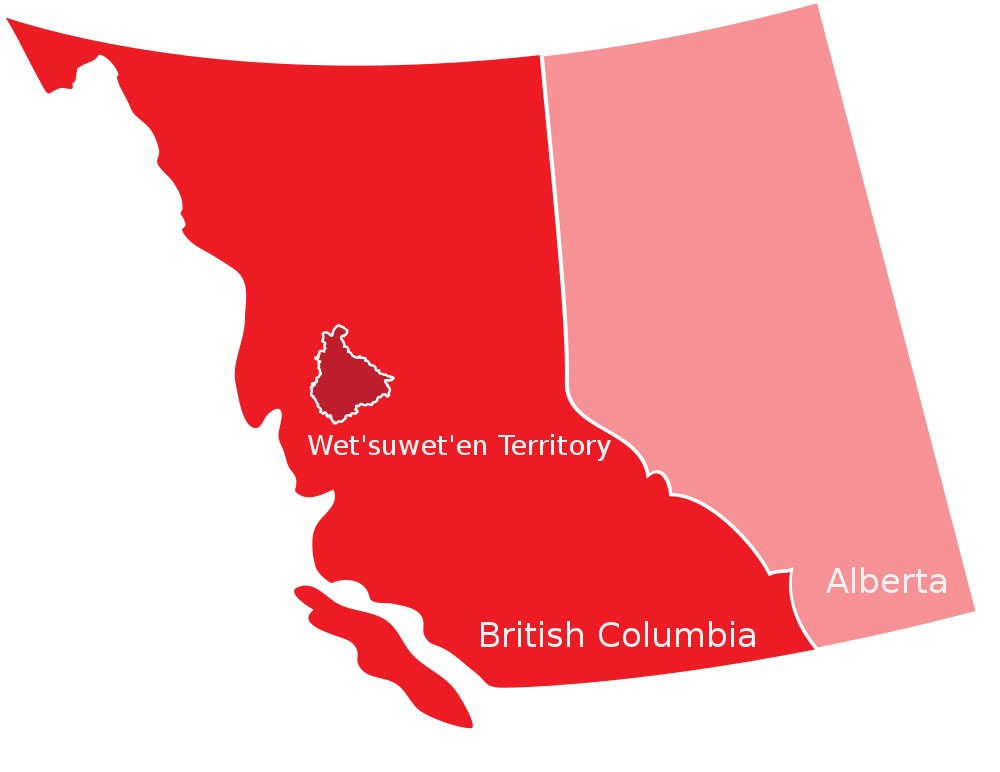
March 19, 2020; The Narwhal
As the global coronavirus pandemic spreads into communities worldwide, there are those who are concerned that governments might take this opportunity to overextend their authority. National declarations of emergency are all well and good for moving funds to crisis response, but marginalized communities are well aware and vigilant about the potential for abuse of power.
(See, for example, how Immigrations & Customs Enforcement took advantage of the lockdown in California to arrest undocumented residents, undeterred by neighbors who might otherwise provide protection.)
In Canada, Wet’suwet’en First Nations communities have spent over a year opposing the construction of a gas pipeline through their ancestral lands. NPQ has been following the story, as the Canadian government backs TC Energy’s (formerly TransCanada’s) Coastal GasLink pipeline over the wishes of indigenous communities living on unceded sovereign land.
Hereditary chiefs have been meeting about a draft agreement reached last month between Wet’suwet’en hereditary leaders, British Columbia provincial leaders, and the federal government to expedite the nation’s rights and title process. Concerns about coronavirus and its impact on vulnerable indigenous communities drove the community to move meetings online or push them back. One community member told The Narwhal, “I have no idea when we’re going to reschedule.”
That wouldn’t be an issue, except that TC Energy does not seem to share their health concerns. Work on the pipeline route continues, which means that workers who are not part of the community are being brought into the territory with limited screening or protection protocols in place. Coastal GasLink’s own website confirms that they had some protections in place for their workers, such as onside medics, but none for the communities those workers (illegally in this case) entered.
Sign up for our free newsletters
Subscribe to NPQ's newsletters to have our top stories delivered directly to your inbox.
By signing up, you agree to our privacy policy and terms of use, and to receive messages from NPQ and our partners.
A solidarity group in the UK tweeted, “Despite the COVID-19 crisis, TC Energy is still going ahead with construction of the Coastal GasLink pipeline, putting communities and their workers at even more risk. We need all eyes on the Wet’suwet’en frontlines right now.”
Rising Tide North America, a grassroots network devoted to confronting the causes of climate change has sponsored a petition claiming a US private equity group called KKR has plans to purchase a majority share in the pipeline. The petition calls on KKR’s executives to divest from the pipeline, depriving TC Energy of the money to complete the project. The hashtag #ShutDownKKR has been gaining traction among indigenous communities and allies who worry that despite admonitions from federal courts, nonprofit advocacy groups, and the United Nations, Canada’s government will force the pipeline project onto First Nations land.
The Canadian Association for Conservation of Cultural Property issued a public letter expressing respect and solidarity to the Wet’suwet’en people, “who, in conformity with their own laws and on their own land, express their right to protect the natural world and their cultural patrimony, which to them are inextricable.”
Multiple sources have confirmed that indigenous peoples like First Nations are at greater risk in a pandemic, mostly due to inferior access to things like health care and clean water. Canada’s First Nations tried to close their borders to protect their 1.4 million citizens, but obviously TC Energy does not recognize Wet’suwet’en sovereignty. The Union of BC Indian Chiefs issued a statement two weeks ago, demanding “clearer, stronger measures”to protect their citizens and all Canadians from the pandemic.
TC Energy stated on March 16th that no cases of COVID-19 had been confirmed among Coastal GasLink workers, but of course such a thing is subject to change. Just this week, Annita Lucchesi wrote a powerful article for NPQ explaining how land-based violence is a threat to indigenous communities’ health. Lucchesi referred primarily to the prevalence of violence against indigenous women and girls, but the same principle applies here. The presence of Coastal GasLink workers on Wet’suwet’en land was always a threat, and the pandemic has made it worse. It’s time for them to leave.—Erin Rubin













